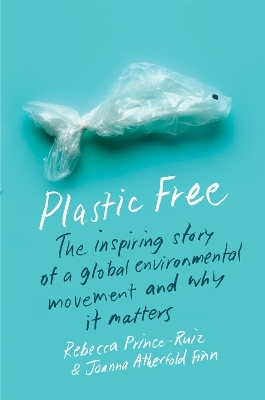
In July 2011, Rebecca Prince-Ruiz challenged herself to go plastic free for the whole month. Starting with a small group of people in the city of Perth, the Plastic Free July movement has grown into a 250-million strong community across 177 countries, empowering people to reduce single-use plastic consumption and create a cleaner future.
This book explores how one of the world’s leading environmental campaigns took off and shares lessons from its success. From narrating marine-debris research expeditions to tracking what actually happens to our waste to sharing insights from behavioral research, it speaks to the massive scale of the plastic waste problem and how we can tackle it together. Interweaving interviews from participants, activists, and experts, Plastic Free tells the inspiring story of how ordinary people have created change in their homes, communities, workplaces, schools, businesses, and beyond.
It is easy to feel overwhelmed in the face of global environmental problems and wonder what difference our own actions could possibly make. Plastic Free offers hope for the future through the stories of those who have taken on what looked like an insurmountable challenge and succeeded in innovative and practical ways, one step—and one piece of plastic—at a time.
Strong Start, Your Mileage May Vary On Ending. I gotta admit, as an American I'd never heard of Plastic Free July before seeing this book on NetGalley. (And yes, since I am writing this review on July 21, 2020 - the day after it hit NetGalley - and it doesn't publish until December 8, 2020, this is certainly an Advance Review Copy, with all of the things that generally entails.) But the description of how Prince-Ruiz started the organization sounded promising. And the text of the book, for the first half - two thirds or so, showed exactly that promise. Someone deciding independently to choose to do something that could make a difference and work to convince her friends and family to do the same... in the age of social media. The back part of the book, where the organization shifts from voluntary action to political action - which is ultimately *always* at the point of a sword (in Ye Olden Times) or gun (in the modern era) - is more problematic and is where the book will likely be seen as much more divisive. I try to keep my own politics out of my reviews to as much a degree as possible, so I'll simply note that through this section the voluntary actions the author describes are commendable, and I've actually supported a few of them myself, but the less-than-voluntary actions... any time politics gets involved, you invite problems. Ultimately a great look at various things we all can and arguably should do, marred by its descent into politics. Recommended.
Reading updates
-
Started reading
-
21 July, 2020:
Finished reading
-
21 July, 2020:
Reviewed
